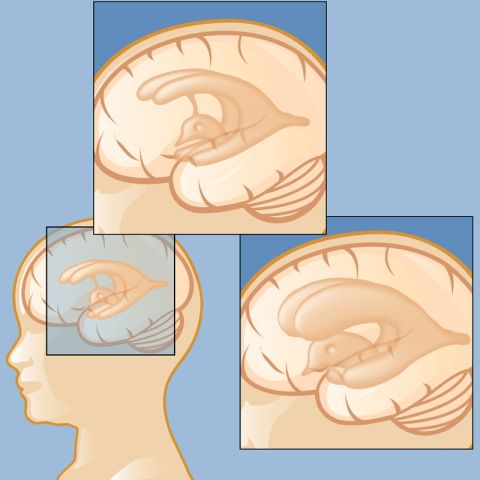
Hydrocephalus is a disturbance in the flow of cerebrospinal fluid (CSF), which is a clear fluid produced in the brain's ventricles (an interconnected series of cavities deep in the brain). CSF fills the areas in and around the brain and spinal cord to help support and cushion delicate structures. The fluid also plays a role in supplying nutrients, and clearing the brain of potentially harmful substances.
Normally, CSF is created and then reabsorbed into the circulatory system. When there is an imbalance between the rates at which CSF is produced and reabsorbed (meaning that CSF is produced faster than it can be absorbed), or when there is a blockage that prevents the normal flow of CSF, the fluid builds up and increases the pressure inside the skull. This condition is known as hydrocephalus, and it is one of the most common reasons a child might have to see a neurosurgeon.
Hydrocephalus may be congenital (developed before birth) or acquired (developed during or after birth, from a wide range of causes — see below). There are three types of hydrocephalus, and they occur in different areas of the brain:
What Causes Hydrocephalus?
Hydrocephalus can result from a wide range of causes, including congenital malformations that do not allow CSF to flow properly, tumors or blood clots that obstruct CSF circulation, or as a complication of injury or infection. (Learn to recognize the Symptoms of Hydrocephalus.)
Reviewed by Jeffrey Greenfield, Ph.D., M.D.
Last reviewed/last updated: April 2021
Illustrations by Thom Graves, CMI